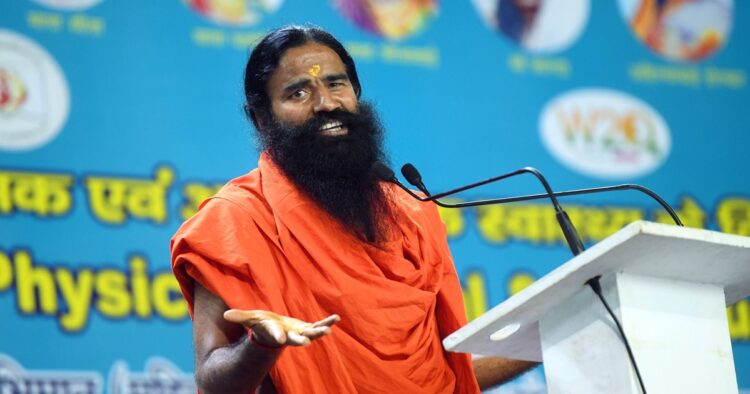In a recent development, the Supreme Court has issued strong remarks against Yoga guru Ramdev and Patanjali Ayurved, a prominent FMCG company, for publishing misleading advertisements. These advertisements have been a subject of controversy, leading the apex court to ban the marketing of Patanjali products until further notice.
Shares of Patanjali Foods, the FMCG arm of the group, witnessed a significant decline following the Supreme Court’s intervention. The stock plunged by 5.26% to reach an intraday low of Rs 1,342. The court has summoned Yoga guru Ramdev and Patanjali Ayurved Managing Director Acharya Balkrishna to appear personally in connection with contempt proceedings related to the advertising of Patanjali’s products and their claimed medicinal efficacy.
The Supreme Court’s summon comes after previous observations highlighting concerns over the advertising practices of Patanjali Ayurved. Senior lawyer Mukul Rohatgi, representing Patanjali Ayurved, opposed the move by the court, questioning Ramdev’s involvement in the matter. However, the court dismissed Rohatgi’s objections, indicating that it will address the issue on the next hearing date.
Expressing dissatisfaction with Patanjali’s advertising strategies, the Supreme Court remarked that the “entire country is being taken for a ride.” Justices emphasized the need for accountability, stating that as officers of the court, the legal team representing Patanjali Ayurved should be aware of their responsibilities.
This isn’t the first time the Supreme Court has reprimanded Patanjali for its advertisements. Three weeks ago, the court had questioned the company’s claims regarding the permanent relief provided by its products, asserting that such assertions could mislead consumers. The bench emphasized the gravity of the situation, stating that misleading advertisements deceive the entire nation.
The apex court has been particularly critical of Patanjali’s failure to respond adequately to previous notices. It has raised questions regarding the company’s compliance with the undertaking given to the court in November 2023, where Patanjali pledged not to make any statements claiming medicinal efficacy or disparaging any system of medicine.
The case revolves around Patanjali’s advertisements that directly criticized allopathic medicines, despite assurances made to the court. The bench also expressed dissatisfaction with the Ministry of Ayush’s response to the issue, urging prompt action and self-monitoring to address such misleading advertisements.
As the legal battle ensues, the Supreme Court’s stance underscores the importance of responsible advertising and consumer protection. The outcome of this case will likely have significant implications for Patanjali and the broader FMCG industry in India.

















Comments